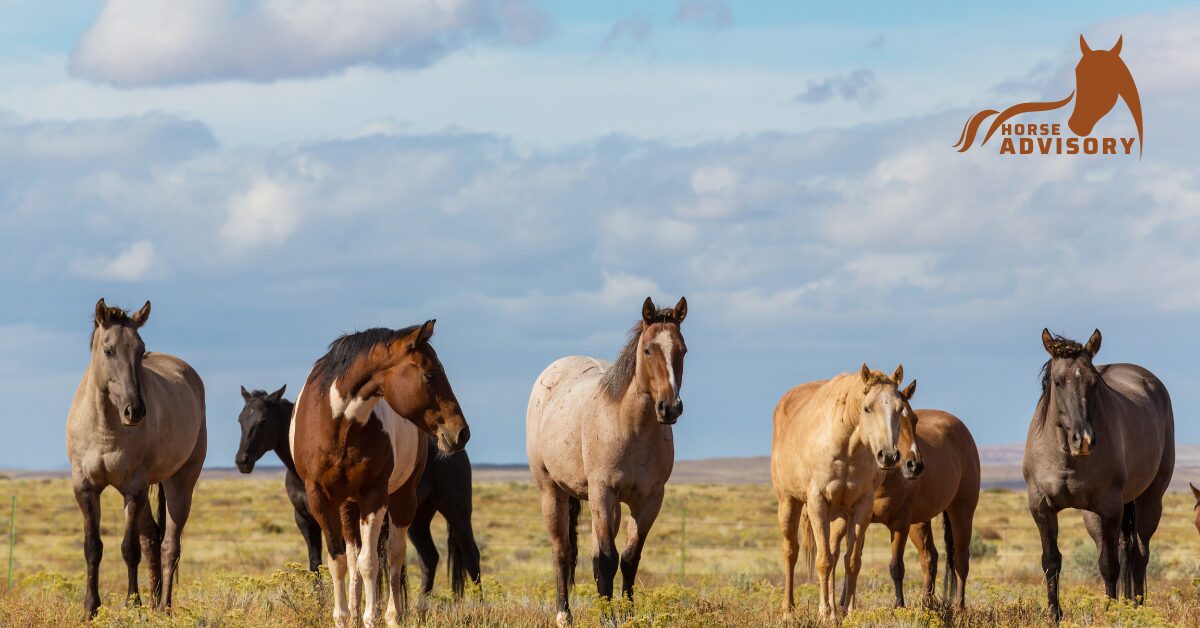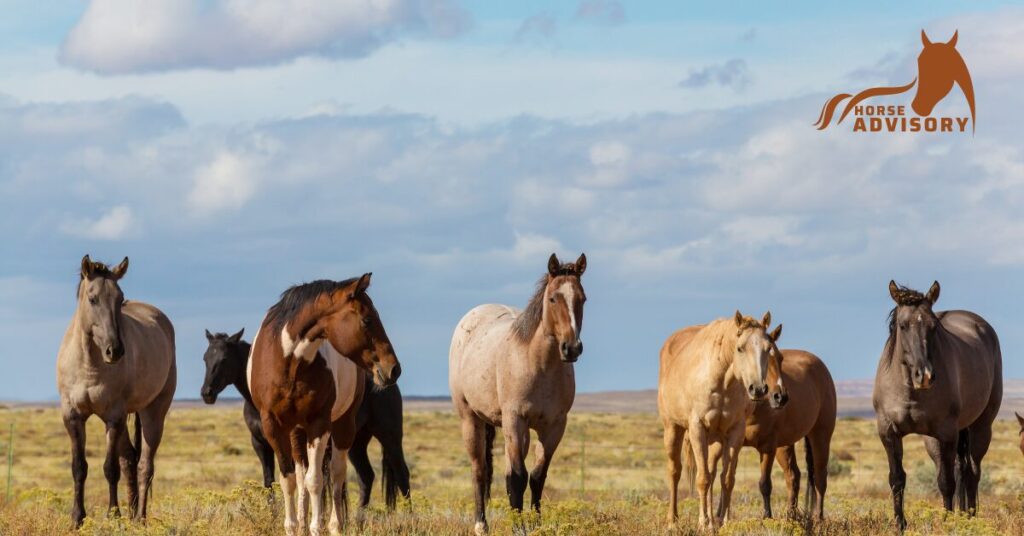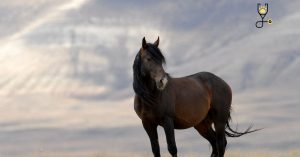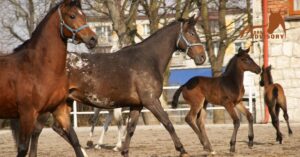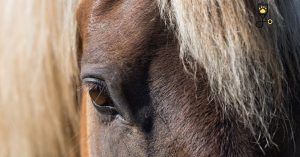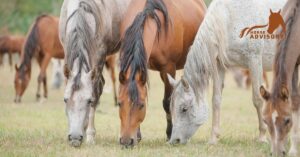Horses, with their innate social instincts and herd mentality, thrive in environments that prioritize socialization. Understanding the intricate dynamics of horse social behavior unveils a world where interactions shape relationships, communication, and well-being. This guide delves into the significance of socialization for horses, exploring methods, challenges, and solutions across different life stages to foster healthy and fulfilling social connections.
Understanding Horse’s Social Behavior
Horses exhibit a strong instinct for herding and establish hierarchies within their groups. This hierarchical structure assigns individual roles and influences social interactions, particularly in terms of resource access such as food and water. Understanding the intricacies of herd instinct and hierarchy is essential for effective socialization practices.
Communication among horses primarily occurs through body language, vocalizations, and physical interactions. Through these channels, horses convey their intentions, emotions, and social status to fellow herd members. Interpreting these communication cues enables handlers to nurture positive relationships and intervene appropriately to prevent conflicts.
The process of socialization profoundly impacts horse behavior. Proper socialization fosters the development of social skills and confidence, leading to well-adjusted and emotionally stable horses. Conversely, inadequate socialization or isolation can trigger social anxiety, aggression, and other behavioral issues that adversely affect the horse’s overall well-being.
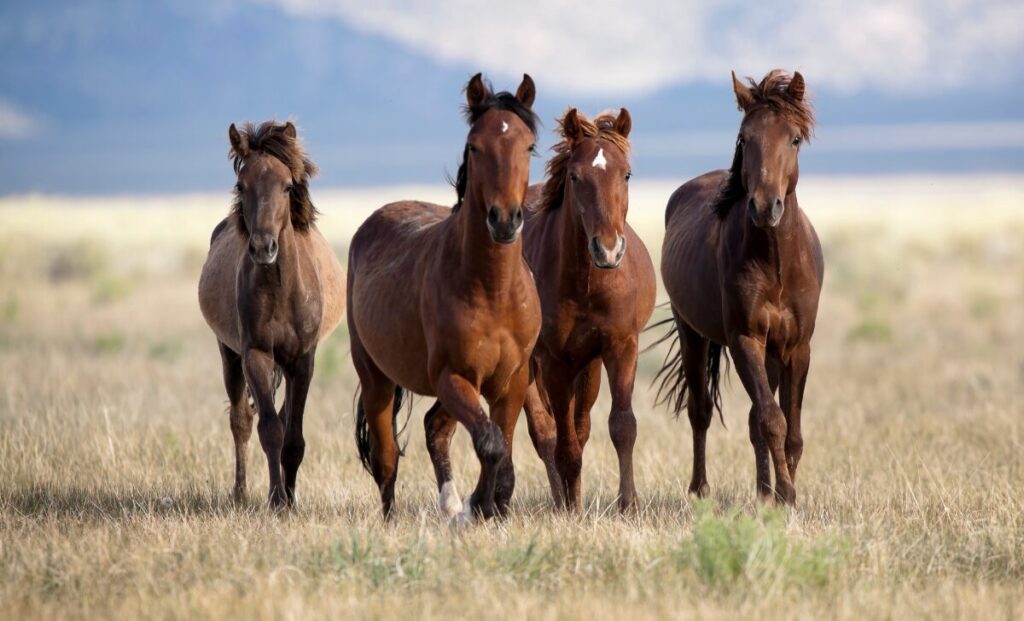
Methods for Horse Socialization
Participating in group turnout offers horses numerous benefits for their social growth and well-being. It allows them to engage in natural social behaviors like grooming, playing, and providing mutual protection, which contributes to their overall welfare. Nonetheless, managing turnout dynamics, including factors such as group compatibility, area size, and supervision, is crucial to ensuring safety and minimizing conflicts.
Introducing horses to new companions should be done gradually to decrease stress and potential disputes. Methods like fence-line introductions and controlled group interactions offer horses the opportunity to establish social bonds at their own pace, reducing the risk of aggression or injury. By closely monitoring interactions and reactions, handlers can intervene as necessary, guaranteeing a smooth and positive introduction experience for all horses involved.
Implementing enrichment activities is key to fostering social development in horses by stimulating them mentally and physically. These activities may involve social play, such as incorporating toys or obstacles in the turnout area, as well as group exercises that encourage cooperation and teamwork. Not only do these activities promote sociability, but they also combat boredom and reduce stereotypical behavior, resulting in happier and more fulfilled horses. Enrichment options range from pasture rotations and group trail rides to structured training sessions involving multiple horses working towards a common goal.
Horse Socialization Across Life Stages
Foals & Young Horses
In their early stages, foals and young horses learn crucial social cues from their mothers and peers. Interactions with their dam and other young horses teach them communication skills, boundary setting, and navigating social hierarchies. These foundational experiences shape their social aptitude and behavior as they mature.
Early socialization plays a pivotal role in shaping well-adjusted adult horses. Exposing young equines to diverse social situations, including human interaction and varied environments, fosters confidence and adaptability. Positive early encounters can help prevent social anxiety and behavioral issues in later life.
Adult Horses
Regular engagement with both equine companions and humans is beneficial for adult horses to enhance their social skills. Interacting regularly with compatible herd members allows them to maintain social bonds and exhibit appropriate behaviors. Activities like grooming, groundwork, and riding not only facilitate positive social interactions but also strengthen trust and cooperation between horses and humans.
Addressing social challenges in adult horses may involve interventions to manage aggression, anxiety, or social detachment. Training methods such as desensitization, positive reinforcement, and establishing clear boundaries can help modify undesirable behaviors and cultivate healthy social dynamics within the herd or in interactions with humans.
Senior Horses
Socialization considerations for senior horses account for their evolving needs and capabilities. While elderly equines may have reduced social interactions due to health or mobility limitations, maintaining some level of social engagement is crucial for their mental well-being. Encouraging mild interactions with familiar companions or providing proximity to other horses can help prevent social isolation and loneliness in older horses.
Adapting socialization activities for senior horses involves considering their physical constraints and individual preferences. This may involve arranging smaller turnout groups, shorter social sessions, or offering tailored enrichment activities that cater to their specific needs, such as gentle grooming sessions or supervised grazing in a secure environment.
Challenges and Solutions
Aggression and Dominance Issues
Recognizing signs of aggression in horses is vital to prevent conflicts and ensure the safety of both equines and handlers. Indicators like flattened ears, exposed teeth, charging behavior, and aggressive stances signal potential hostility. Early identification of these cues allows for timely intervention and the application of de-escalation techniques.
Managing aggression involves establishing clear leadership, maintaining consistent discipline, and providing adequate resources to reduce competition. Strategies such as structured feeding routines, thoughtful pasture management, and positive reinforcement training can help mitigate aggressive tendencies and foster a more peaceful social atmosphere.
Social Anxiety & Isolation
Detecting symptoms of social anxiety in horses necessitates close observation of their actions and non-verbal cues. Behaviors like excessive pacing, avoidance of social interactions, and withdrawal from herd activities may indicate feelings of isolation or social discomfort. Understanding these signals empowers handlers to intervene effectively and implement tailored approaches to alleviate distress.
Mitigating isolation involves creating a supportive social setting that meets the horse’s social needs while respecting their individual preferences and boundaries. This may entail facilitating gradual introductions to new companions, fostering healthy social interactions, and providing mental stimulation through enrichment activities or structured training sessions.
Health Considerations
Maintaining optimal health and preventing disease transmission during socialization demands meticulous management practices, including regular health assessments, vaccination protocols, and quarantine procedures for newcomers. Implementing measures to minimize direct contact between horses from different environments, enforcing stringent biosecurity protocols, and upholding cleanliness standards in shared spaces are essential for curbing disease spread within the herd.
Proactive healthcare for socially interactive horses involves routine veterinary care, vaccination schedules against prevalent equine illnesses, regular dental examinations, deworming treatments, and prompt attention to injuries or illnesses. These components collectively form a comprehensive healthcare regimen to support the well-being of socially engaged equines.
FAQs
Q1: What is horse socialization?
Horse socialization refers to the process through which horses interact, communicate, and form social bonds with other horses, playing a vital role in their emotional well-being and behavioral development.
Q2: Why is horse socialization necessary?
Horse socialization is essential for fulfilling their natural herd instincts, promoting mental stimulation, reducing stress, and fostering healthy social behaviors and relationships.
Q3: How do horses interact with one another?
Horses interact through body language, vocalizations, and behaviors such as grooming, playing, and establishing hierarchies to communicate and establish social bonds.
Q4: What are the advantages of group turnout for horses?
Group turnout provides horses with opportunities for exercise, social interaction, mental stimulation, and security in numbers, promoting physical health and emotional well-being.
Q5: How can I securely introduce my horse to new companions?
Introduce new companions gradually in a controlled environment, monitor interactions closely, and ensure compatibility to facilitate a smooth and safe integration process.
Conclusion
In conclusion, socialization plays a pivotal role in shaping the lives of horses, enriching their experiences, and nurturing their well-being. By understanding horse social behavior, implementing effective socialization methods, and addressing challenges with informed solutions, horse owners can create environments that support healthy social interactions and foster strong bonds among equine companions. Prioritizing socialization across different life stages ensures that horses receive the social enrichment they need to lead happy, fulfilling lives in the company of their peers.
